Career Path as a Collibra Specialist in Data Governance
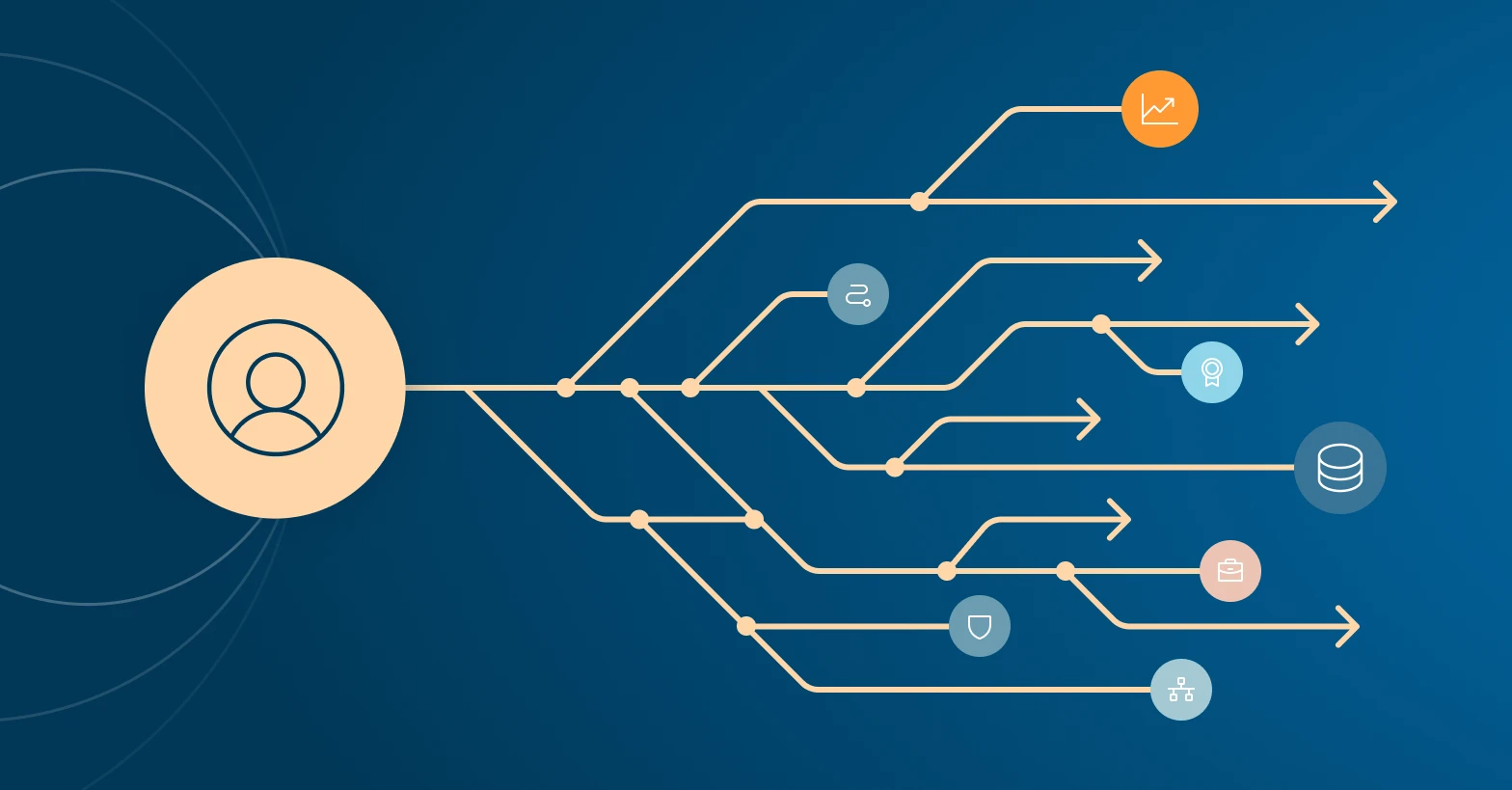
24 06
2025

24 06
2025
If you’re looking for a new, rewarding caree path that involves data and a lot of dot-connecting, data governance might be just the direction for you. Here’s what starting out as a Collibra specialist looks like, what the job takes, and what it offers (and also, how you can join Murdio, as we’re always on the lookout for smart Collibra experts.)
The World Economic Forum’s Future of Jobs Report 2025 paints a pretty clear picture: the job market is changing, and it’s changing fast. (If you participate in it, you probably know that already.)
Thanks to the development of AI, many jobs are expected to disappear. But many more will be created. In fact, according to the report, by 2030, we’re looking at nearly 78 million new jobs globally, with data-driven roles right at the center of this shift.
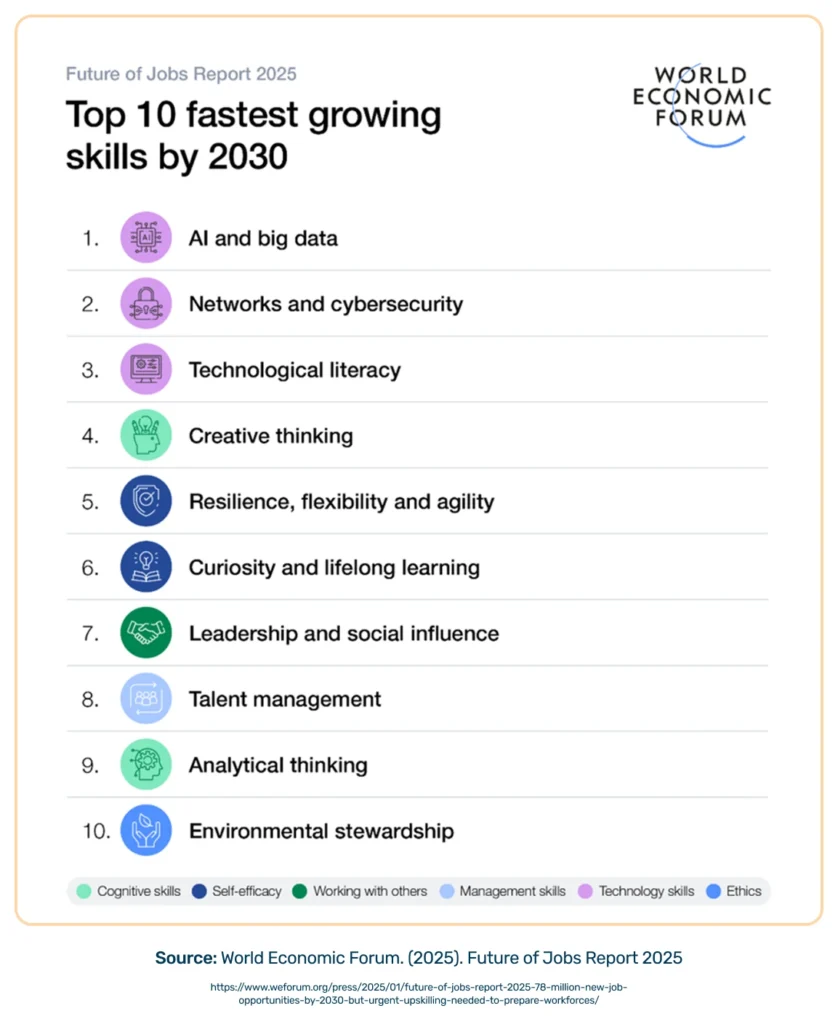
Among the most in-demand positions? Data analysts, big data specialists, and digital transformation experts, all of whom rely on strong data governance practices. Without clean, well-managed data, even the most advanced AI models or dashboards can fall apart. That’s where specialists in the field, along with tools like Collibra, can make a real difference.
The report also highlights something else: the skill set that employers are looking for is evolving. Around 39% of core skills are expected to change by 2030. Sure, technical skills like AI, big data, and cybersecurity are in demand. But so are more human-centric skills such as creative thinking, adaptability, and resilience.
It’s a strong signal that companies aren’t just looking for coders or analysts anymore. They need people who can connect the dots between data, people, and processes. And that’s exactly what a good Collibra Specialist does.
If you’re wondering whether it’s worth getting into data governance (or leveling up in it), you’re not just betting on a trend.
Data is now one of the most valuable assets for organizations across industries. There is really no business without data. And as companies grow more reliant on data for decision-making, analytics, compliance, and automation, the demand for effective data governance has gone through the roof.
According to Gartner, by 2026, 20% of organizations will have formal data governance frameworks in place, up from less than 10% in 2021. At the same time, IDC projects that global data creation will reach 180 zettabytes by the end of 2025. This massive data boom has fueled the growth of tools and platforms like Collibra, which help organizations manage data quality, lineage, ownership, and compliance.
Becoming a Collibra Specialist in this business landscape positions you at the intersection of technology, business, and data strategy. And this job is not just configuring software. It’s also enabling smarter decision-making, ensuring regulatory compliance, and supporting data democratization across the enterprise.
And it’s not just the global trend that matters. In markets like Poland, we’re seeing a major shift. The custom software development model that once dominated the local tech scene is gradually losing ground. Many companies that used to rely on project-based, build-from-scratch development are now struggling to stay relevant or afloat.
On the other hand, specialized service providers – those focused on niche, high-demand areas like data governance – are proving more resilient and sustainable.
Choosing a career path in data governance, especially with leading platforms like Collibra, means aligning yourself with long-term market needs and joining a field that’s evolving fast and offering ample room for professional growth.
If you’re thinking about moving towards the Collibra environment with the skills you already have – maybe in software development, data analytics, project management, etc. – here’s what that career path can look like.
If you’re just beginning your journey in data governance, you might enter the field through roles such as:
Roles like these involve configuring the Collibra platform, onboarding new users, assisting with data catalog implementation, and providing support to data owners, stewards, and analysts. Entry-level specialists can also help maintain metadata, define workflows, and make sure that business glossaries are accurate and up to date.
At Murdio, we’re currently looking for an Entry-level Collibra Specialist to join our team. As you grow in the field, possible future roles include:
So, as you can see, there’s no single path from the starting point. And depending on your strengths and career growth direction, starting as an Entry-level Collibra Specialist can get you in different positions and on different trajectories.
You don’t need Collibra expertise to start, but some technical understanding is definitely helpful. Depending on the focus of the job (more development-focused vs. more solutions-focused), what comes in handy is:
At Murdio, what we’re looking for specifically in an Entry-level Collibra Specialist is:
(And no previous Collibra experience required — we will train you within our Murdio Academy.)
Speaking of training, Collibra offers structured training through its Collibra University, where beginners can access learning paths, including:
With these kinds of certifications, you can not only build your competence but also signal credibility to potential employers.
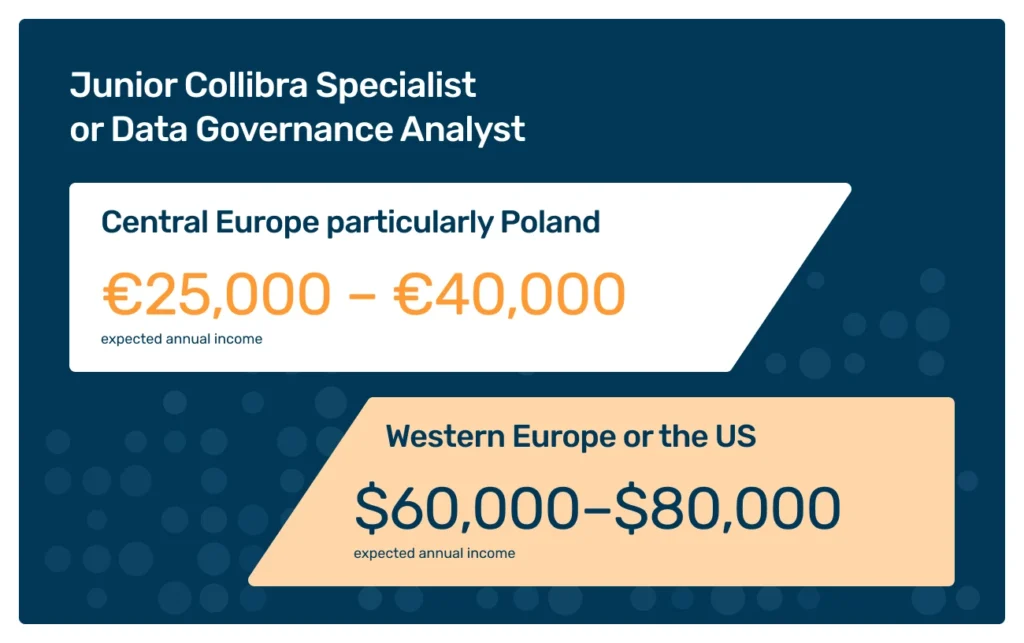
Collibra salaries vary depending on location, experience, and company size.
*We’re mostly talking about full-time job salaries. If you go the consultant route, with hourly rates, you can work up to higher amounts, for sure. According to Glassdoor, a salary for someone working up to a year in the industry as a Collibra Data Governance Consultant can go up to $134,000 a year.
ZipRecruiter cites $69 as the average hourly rate of a Data Governance Consultant.
After gaining 2-4 years of experience, many professionals transition into mid-level roles such as:
(Again, we’re mostly talking the corporate route here. When you’re on your own as a consultant, you have more freedom, and also can combine different services and skills that you select.)
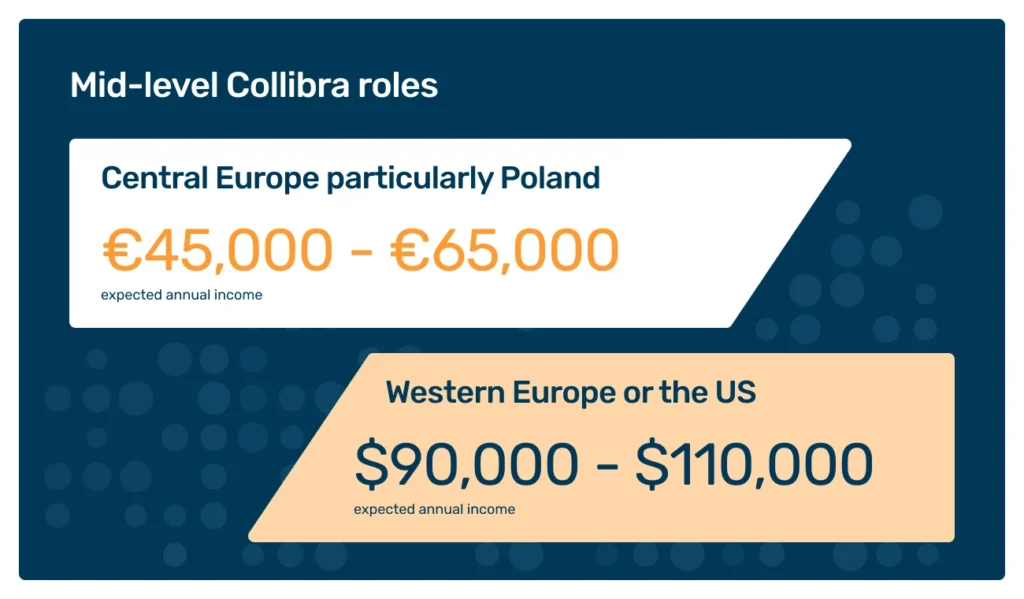
This stage typically includes greater responsibility, such as leading parts of the Collibra implementation, managing user roles and policies, and integrating Collibra with other enterprise systems (like Snowflake, AWS, or Tableau).
At this level, you’ll need:
Many professionals reach mid-level positions within 2-3 years, especially if they actively pursue certifications and hands-on project experience. Of course, this can vary depending on multiple factors, so this is just an initial estimate.
Mid-level specialists often pursue:
Mid-level Collibra roles typically earn:
(*Employed full time. Consulting rates can go higher than that.)
Once you’ve built substantial experience (5-8+ years), you can advance into leadership roles such as:
These roles involve setting strategic direction for governance programs, mentoring junior staff, leading Collibra implementations across enterprise environments, and aligning governance goals with broader business strategies.
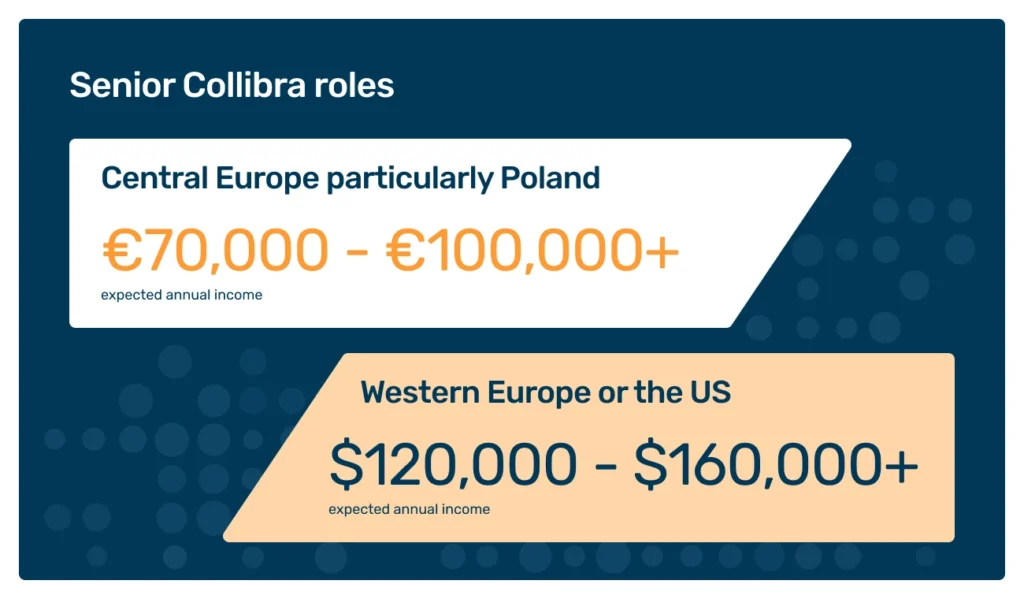
Leaders in this field focus on:
Salaries for senior roles are significantly higher and can roughly be:
(Or higher, if you’re an independent consultant working with clients on a project by project basis.)
As we’ve said before, you don’t have to start your career in data governance to become a Collibra Specialist. Many professionals transition from roles in:
We have people coming from different backgrounds – take a look at their career stories:
His advice for people who want to get started in the data governance field? “Dive into one of the areas of the DMBoK Data Governance wheel. (And join the best team there is – Murdio!)”
His advice for beginners? “Become proficient in a single data governance tool and get involved in real projects to learn from more senior colleagues and fully understand how data governance works in practice.”
He sees it as a great opportunity to get into the world of data governance, despite the several sleepless nights it took to learn everything he needed to pass it.
Apart from joining Murdio, she also recommends: “Never stop learning if you want to grow in the data governance field.”
When they started Murdio, they had a perfect mix of skills and experience to cater to the needs of enterprises using Collibra and other data governance tools.
If you already have domain knowledge and understand business processes, transitioning to a Collibra role might just require learning the platform and getting certified.
A good way to begin is by:
At Murdio, we specialize in end-to-end data governance implementations, with a particular focus on Collibra.
Our typical projects include:
We work in several models, depending on the needs of our clients:
What’s really important is that we don’t just “install and leave.” We build long-term partnerships and help organizations shape their entire data governance strategy with Collibra at the center.
We also work with other data governance tools like Solidatus or Raito, so there’s potential for learning more than just Collibra. (Though, believe us, there’s lots and lots to learn when it comes to Collibra and the different integrations with enterprise-grade tools.)
Some of our past projects include:
If you’re looking to join Murdio as a Collibra Specialist, here’s what the application process usually looks like (and it’s really straightforward):
The demand for Collibra Specialists is growing, and it really is a career worth looking into if you want to transition to an in-demand niche.
At Murdio, we’re a specialized, expert-driven team that values growth, learning, and long-term collaboration. We work on projects that make a real difference to how companies use their data. And we’re always on the lookout for people who want to grow with us, so let us know if this is you!
© 2025 Murdio - All Rights Reserved - made by Netwired